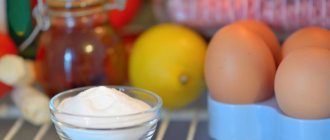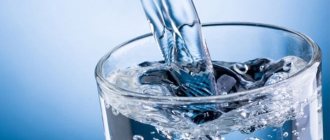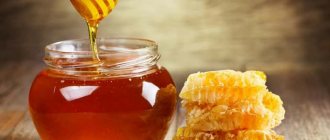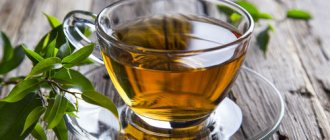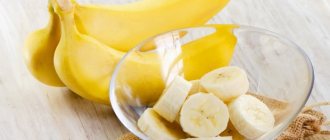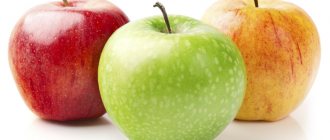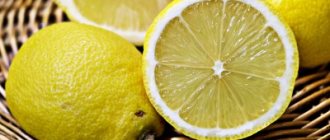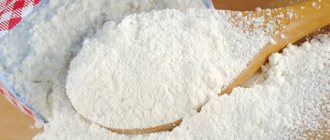According to statistics from the American Gastroenterological Association, more than 15 million people experience heartburn every day. A burning sensation behind the sternum and in the esophagus, discomfort, and a sour taste in the mouth are the main signs of this phenomenon.
Many experts believe that heartburn is the result of the effect of stomach hydrochloric acid on the esophageal mucosa, against the background of gastroesophageal reflux. In addition, other reasons can provoke such an unpleasant symptom - increased consumption of fatty, spicy, salty foods or certain diseases of the digestive system. Regardless of the cause of heartburn, you should not ignore it, much less endure the accompanying unpleasant sensations. Not only pharmaceutical drugs, but also some traditional medicine recipes can help in treatment. Thus, the most well-known means of suppressing burning in the esophagus is milk. We will describe later in the article whether milk helps with heartburn if you drink it.
The appearance of heartburn
In general, while a person feels an unpleasant burning sensation in the sternum, pain, nausea, belching and vomiting, the stomach contents are refluxed into the esophagus. Their environment is different. Acid, entering from the stomach into the alkaline environment of the esophagus through, most often, an incompetent lower esophageal sphincter, burns the epithelium and provokes the appearance of a whole range of unpleasant painful sensations.
The appearance of heartburn can be provoked (if there is a predisposition or pathology of the gastrointestinal tract) by various factors:
- Diet errors, excess fried, fatty foods.
- Being in a horizontal position, especially after a heavy meal.
- Staying bent over for a long time (for example, due to profession).
Diet.
Rules and basic principles of nutrition for heartburn:
– Follow fractional meals – eat 5-6 times a day, portions should be very small.
- Don't overeat. The stomach should not be clogged. Eat just enough portion to satisfy your hunger.
– Avoid late meals.
– Remember: eating is not a speed relay race. There is no need to eat quickly, as if you are being rushed. This manner of dining is stressful for the stomach, and one of the reasons for frequent heartburn.
– Immediately after a meal, you should not lie down, much less play sports. Walk around the house for about 30 minutes, and only then can you go to bed. If walking is difficult (for example, you are pregnant), take a comfortable sitting position.
– Give up everything harmful – forget about smoking, alcohol, fatty foods, fast food and processed foods, chewing gum, synthetic breakfast cereals, yeast baked goods.
– It is better to replace animal fats with vegetable fats.
– Do not eat too hot foods.
– Avoid over-salted foods. Yes, delicious. But this is another unnecessary irritant for the stomach.
What can you eat if you have heartburn?
– Sweet berries, fruits and melons – melon, watermelon, apricots, pears, bananas, sweet varieties of apples, ripe strawberries.
– Dried fruits in small quantities – dates, dried apricots, prunes.
– Boiled or steamed lean meat – beef, skinless chicken fillet. This also includes steamed cutlets.
- Boiled lean fish.
- Boiled eggs, steamed omelette.
– Low-fat broths, vegetable soups, puree soups.
– Fresh, stewed or boiled vegetables – potatoes, cucumbers, pumpkin, carrots, broccoli, green peas, cauliflower, zucchini.
- Dill and parsley.
– Cereals with water or milk – buckwheat, white and brown rice, oatmeal porridge.
– Some drinks – weak tea, still water, rosehip infusions, sweet juices freshly squeezed and diluted with water.
– Olive oil, low-fat unsalted butter, sunflower oil.
– Dried wheat bread (yesterday’s), crackers and savory buns, unsweetened dry biscuit.
You can try using small amounts with caution:
- Sauerkraut.
– Legumes and pasta, especially with sauces – these dishes sometimes provoke heartburn.
– Low-fat milk, low-fat cottage cheese, some types of cheeses (feta, goat, soy), as well as unflavored yogurt, low-fat sour cream.
- Scrambled eggs without seasoning.
– Peaches, strawberries, raspberries, grapes, blueberries.
– Stewed or canned low-fat fish.
- Yesterday's unsweetened pastries.
– Milk chocolate in small quantities.
– Natural marmalade and jelly.
Prohibited foods and dishes for heartburn include:
– Strong meat or mushroom broths, borscht and other first courses using tomatoes, as well as okroshka.
– Fatty meats and fish.
– Some raw vegetables that are high in fiber, such as beets.
– Sour and unripe vegetables, fruits and berries – citrus fruits, especially lime, lemon, as well as tomatoes and various tomato sauces.
- Fried. This category includes barbecue, steaks, French fries and all fast food.
– Semi-finished products and all kinds of smoked meats.
– Spicy, salty - anything that is too salty or overly spiced is taboo for you.
– Alcohol and carbonated drinks.
MORE ABOUT: Top 5 cheap analogues of Espumisan - a list of how to replace the drug |
– Pickled foods and any marinades.
– Sour juices – cranberry, tomato, orange.
– Vinegar, horseradish, raw onion, pepper, mustard, radish, radish, lemon balm, mint. The latter product is one of the most common causes of heartburn.
– Strong tea, cocoa, coffee, dark chocolate.
– Breakfast cereals – muesli, various cereals, as well as chips, crackers and other synthetic snacks.
– Any yeast-based baked goods – bread, sweet buns and cakes, donuts, cookies with cream, pies (especially fried ones), as well as kvass and beer. Yeast causes bloating and heartburn.
– Fatty dairy products – cottage cheese, sweet masses, milkshakes, homemade milk, ice cream, and sharp cheeses.
Is milk for or against heartburn?
Some people resort to milk to relieve the symptoms of heartburn. After all, it, having an alkaline reaction, can neutralize excess acid secreted by the stomach.
But not everything is so simple, the neutralization reaction that has occurred quickly fades away, and the milk protein, after curdling, stimulates the secretion of the gastric glands and leads to a second wave of heartburn with renewed vigor.
In addition, milk is a product to which individual intolerance is possible due to enzymatic deficiency. If there is one, after taking milk and dairy products, discomfort, bloating, and stool disturbances occur.
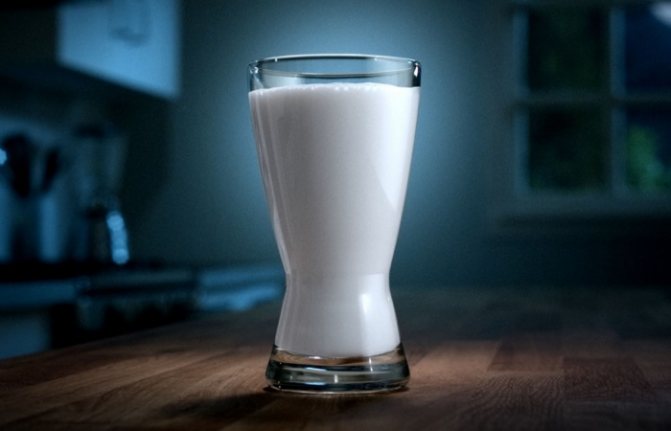
A healthy person can drink milk without risking heartburn.
Scheme of use: main criteria
Milk helps against heartburn when consumed correctly. Large doses, on the contrary, can be harmful.
If you drink 3 glasses a day or more, you may encounter problems such as diarrhea, gastritis, flatulence or allergies. Cow product affects each person differently.

By following the basic rules of traditional treatment, the patient can quickly feel better.
- Drinking milk for heartburn should be reasonable. To soften irritated mucous membranes, just half a glass of a fatty drink is enough. If anxiety does not go away within half an hour, then you can drink the second half.
- To achieve a long-lasting effect, it is permissible to consume other dairy products: cottage cheese, yogurt, yogurt. They take longer to digest, and cope with disturbing symptoms no worse.
Interesting! Foods for heartburn: what you need to eat to make it go away
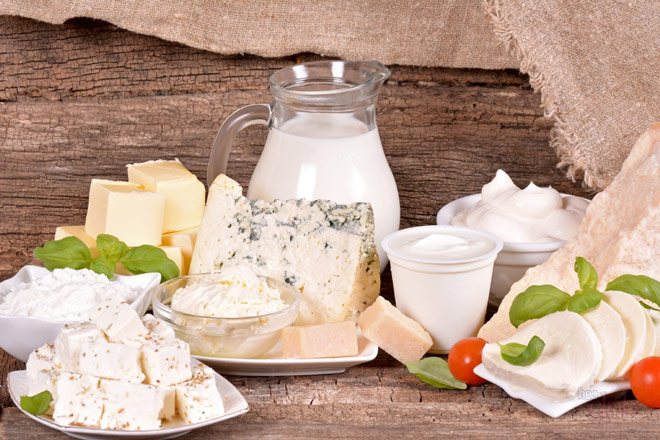
- Milk for heartburn during pregnancy should not be consumed at the height of the syndrome, but for the purpose of prevention. The exception is women with toxicosis. The folk remedy may not help them.
- Heartburn from milk is rare, but not exceptional. It occurs due to the consumption of a protein drink with a high fat content, which provokes the production of bile. Faced with this problem, a person should switch to using low-fat foods.
- To eliminate burning sensation in the stomach and esophagus, you should not drink only one white drink during the day and refuse other nutritious foods. A dairy diet will only worsen the patient's condition.
Important! If the patient has intolerance to cow protein, lactose or a tendency to bacterial diseases of the gastrointestinal tract, then milk can cause a deterioration in health.
Serious approach
Heartburn is not just a set of unpleasant symptoms, it is, first of all, a manifestation of a disease - gastroesophageal reflux disease (GERD), which is accompanied by regular reflux of stomach contents into the esophagus, the development of pathological changes in the epithelial layer of the lower part of the esophagus.
The development of the disease occurs gradually, with constant progression; ultimately, modification of the esophageal epithelium and tumor growth are possible.
It all depends on the alertness of each of us, because in the initial stages, proper nutrition and a healthy lifestyle are enough for the symptoms to disappear.
Seeking advice
If heartburn begins to bother you more and more often, it means that it is better not to delay visiting a doctor. You can address your complaints to a therapist or gastroenterologist. The examination usually includes a clinical blood test and an endoscopic examination of the esophagus and stomach, during which the endoscopist sees with his own eyes what the mucous membrane of the digestive tract looks like. There are other methods for diagnosing GERD, which are determined by the attending physician, depending on the needs of the patient and the resources of the medical institution.
You should not try to fight the manifestations of heartburn with such folk remedies as soda solution, milk. They can only bring short-term relief, followed by a return of symptoms.
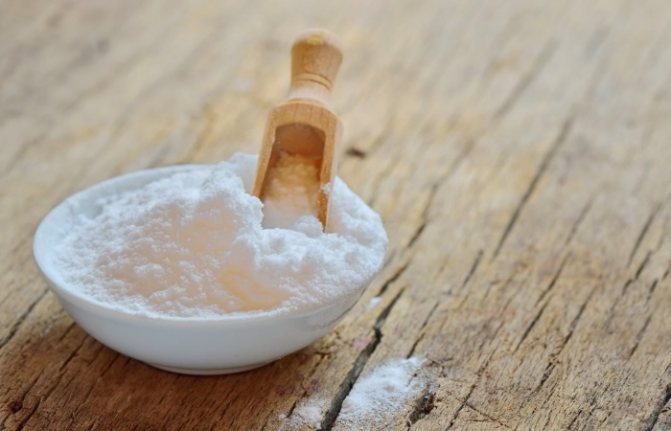
After using soda, you have to pay for temporary relief with subsequent deterioration of the condition.
Modern treatment of GERD uses:
- Proton pump inhibitors and histamine blockers to effectively suppress excess acid secretion.
- To improve the motility of the digestive tract, prokinetics are prescribed; they help fight reflux.
- In advanced cases, it is necessary to resort to surgical intervention.
Lifestyle and nutrition
Diet therapy plays an important role in treatment. Regular meals in small portions every few hours, the absence of fatty foods, preference for dietary varieties of meat and fish, and a sufficient amount of fiber in the diet can largely improve the condition of GERD.
Milk can provoke episodes of heartburn, but this does not mean that it should be completely excluded from the diet. This is done only in case of intolerance. In other cases, the main thing is:
- Do not take milk as a separate meal. Drink a small amount after meals.
- Use milk with a small percentage of fat content.
- Do not take milk in order to relieve yourself of heartburn.
In addition, sufficient physical activity and giving up bad habits: alcohol and smoking will help you maintain your health.
With early detection and proper and timely treatment, you can overcome heartburn, the main thing is to influence the cause of this condition, and not try to mask the disease.
The benefits and harms of milk
It is difficult to overestimate the benefits of this product; its main value lies in the content of easily digestible calcium. It not only adds nutritional value, but is also considered the main component against heartburn.
In addition, daily consumption of milk will enrich the body:
- proteins;
- magnesium;
- phosphorus;
- potassium
These beneficial microelements have a positive effect on the functioning of the digestive system, improve overall well-being, and help cope with fatigue. Even with seasonal colds, milk with honey is an effective cough remedy.
The most affordable is cow's milk; it can be purchased at any grocery store at a low price. But sheep and goat dairy products are considered much healthier, containing high concentrations of vitamins B, A and D. Due to this, they are better absorbed when entering the stomach than cow’s milk and are even recommended for children from the first days of life if the mother is not lactating .
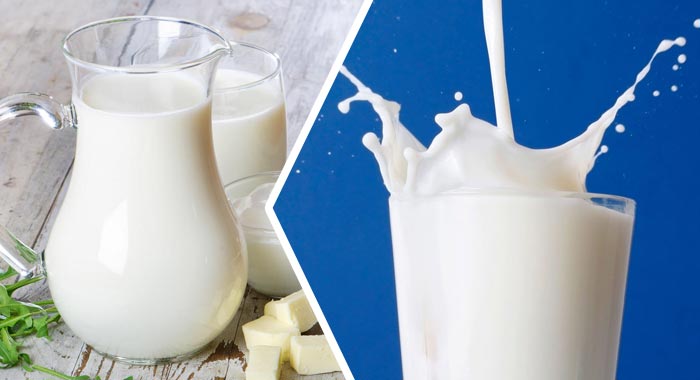
Although the usefulness of milk is difficult to overestimate, its consumption is not recommended for everyone. So, elderly people should not drink it in large quantities due to the content of a significant amount of cholesterol. In addition, in some cases, lactose intolerance is possible, which is accompanied by diarrhea, nausea, and intestinal colic.
Particular attention should be paid to the quality of the product, otherwise intestinal infections and acute digestive disorders may develop. This is especially true for milk bought in markets.


